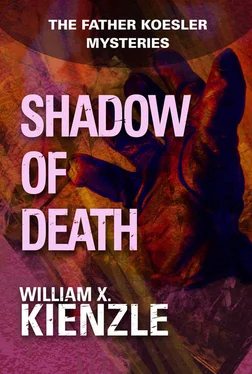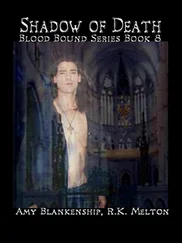“I secured a copy of those guidelines this afternoon from my friend. Superintendent Charlie Somerset.” He took a sheet of paper from his inside jacket pocket. “Let me just read them to you: ‘The primary object of an efficient Police is the prevention of crime: the next that of detection and punishment of offenders if crime is committed. To these ends all the efforts of Police must be directed. The protection of life and property, the preservation of public tranquility, and the absence of crime will alone prove whether these efforts have been successful, and whether the objects for which the Police were appointed have been attained.’
“And now,” Koznicki summed up, “we find ourselves in London, determined to prevent a crime, in the very city where the notion of crime prevention came to full flower.
“But,” he shrugged apologetically, “I have made a short story too, too long.”
“Not at all, Inspector,” reiterated Toussaint. “It was a very informative explanation. And interesting. One does not often think of the police in terms of crime prevention. The more popular image is that they are the ones who come to pick up the pieces and to catch the criminal.”
“Now that you have brought it up,” Koesler said, “I can think of many instances when the presence of the police can prevent crime: speeders on the highways, shoplifters in the stores, muggers in the streets—they all have to watch out for the police. And with the police around, the potential criminal undoubtedly is deterred from acting.”
“Let us hope that the presence of the police in Westminster Abbey tomorrow evening will deter a couple of assailants,” said Toussaint.
“From every indication we have so far,” said Koznicki, “I fear that killers such as the ones we are dealing with are not the type to restrain themselves from acting even if they know the police are present. These give every evidence of being such fanatics. We will simply have to anticipate them and move faster than they do.”
“Let us pray you are able to,” said Toussaint.
“Say,” said Koesler, “maybe that’s an answer to our vocation crisis: Maybe we should train seminarians to prevent heresies instead of reacting to them.”
Toussaint laughed. “I do not think that approach will fill the seminaries, Bob.”
“Well,” said Koesler, “back to the drawing board.”
“Oh, by the way. Inspector,” said Toussaint, “our tour tomorrow will include Westminster Abbey. We can do a little reconnoitering ourselves.”
“Very good,” said Koznicki, “it is impossible to have too much security.”
2.
“I’m sure you’ve all seen blokes like these before,” the guide said loudly. He was referring to the men dressed in the ancient livery of the English Yeomen of the Guard. “At least I’m sure you’ve seen outfits like these if you’re a fancier of good gin.”
The group tittered appreciatively.
Father Koesler regarded the yeomen more carefully than he first had. They looked ridiculous. Further, he thought, some of them seemed conscious of looking ridiculous, especially as the guide, like a circus barker, was calling the group’s attention to them. But, Koesler concluded, if you could buy the uniform of the Swiss Guard, why not the Yeomen of the Guard? Besides, these men would get done with their day’s work, change into modern-day civvies, and drop in at the neighborhood pub on the way home. Swiss Guards, on the other hand, he thought, quite possibly slept in their pantaloons.
“Well, now, folks,” the guide continued in his semi-shout, “there’s a bit of a story behind the moniker these chaps carry. They’re called beefeaters, as you all very well know. There’s them as says they’re called beefeaters simply because they were given a lot of beef to eat. Now that’s hardly a very romantic reason.
“No, I prefer the explanation that goes like this:
“Now, the king, God save him, has not always been the most popular personage in town.”
Appreciative titter.
“So, when the king would go out among the people—rare as that was—he would be surrounded by his guard, attired in precisely the same manner as these blokes here who are wearing the authentic uniform of the time.
“And just in case there’d be an angry constituent or so as would try and smack His Royal Highness, who would take the blow but his ever-faithful guards, the ones who had surrounded him—the ones dressed exactly like these blokes here.
“Now the Norman French saw all this goin’ on and they up and called the guards, ‘buffetiers,’ or those which took the buffets or the blows that was intended for the king. Don’t ya see?”
The guide was a squat man whose face seemed to have been pushed in from a few too many fights and whose vein-discolored nose betrayed a habit of downing a few too many Beefeater gins. His accent was drifting in and out of very correct English, while angling into the vague fringes of cockney. Koesler assumed the man to be a born actor, if not an outright professional. He’d be willing to bet the guide could put on any accent that seemed appropriate.
“Now,” the guide continued, “people began callin’ these yeomen ‘buffetiers,’ according to this story. Except that the English simply didn’t fancy tryin’ to wrap their tongues around foreign soundin’ words. So they very simply changed the pronunciation to ‘beefeaters’. And that’s what they’ve been called to this very day.”
Oohs of comprehension and agreement.
“And a good thing, too, wouldn’t you say, ladies and gents? For wouldn’t it have been a God’s awful pity for that loverly London drink to be called Buffetier’s gin!”
More appreciative merriment.
“By the same token, the worl’ famous bridle path in Hyde Park where the king was apt to go ridin’ was known to the Normans as ‘Route de Roi’—the king’s road. So, a’course, our English tongues made their own sense of it, and converted it to . . .” He looked about. “Anyone have a guess?”
His audience was stumped.
“Believe it or not, we call it ‘Rotten Row.’”
“That’s what happened to that man’s name!” exclaimed Koesler.
“What man’s name?” Toussaint asked.
“That commissioner—Inspector Koznicki’s friend from Scotland Yard. What was it . . .?” Koesler removed from his coat pocket a small piece of paper and consulted it. “Beauchamp! Assistant Commissioner Henry Beauchamp of the C.I.D.
“It is, of course, a Norman French name. If I can trust my none-too-trustworthy French, ‘beauchamp’ means fine, or handsome, field. But the English, as our long-winded guide has just explained, are not only unwilling to admit that any other nation should have a mother tongue, they disdain even pronouncing words that seem foreign and therefore unpleasant to their ears. So, if circumstances force them into confronting a non-English word, they simply anglicize it.
“Thus, ‘buffetier’ becomes ‘beefeater,’ ‘Route de Roi’ becomes ‘Rotten Row,’ and ‘Beauchamp’ becomes ‘Beecham.’ It’s a lucky thing for the linguistic world that, finally, the sun can set on the British Empire!” He shook his head. “But what a sun and what an empire!”
“Eh?”
For the past several minutes, Toussaint had been immersed in his own thoughts. He had been paying little attention to the guide, who was doing his best to educate his covey of sightseers as he commenced to give them a capsulized history of the Tower of London, the first stop on their Frames Tour. Even Koesler’s enthusiasm had fallen on all but deaf ears. Toussaint had heard only Koesler’s last few words.
As if in apology, the deacon picked up his end of the discussion. “I know this strategic site goes back to Julius Caesar and the Roman Empire, and that it was at one time a fortress from which the city could be defended. And now, it houses, among other memorabilia, the crown jewels. But all I can think of it as is an infamous prison, a place of torture and execution.”
Читать дальше












